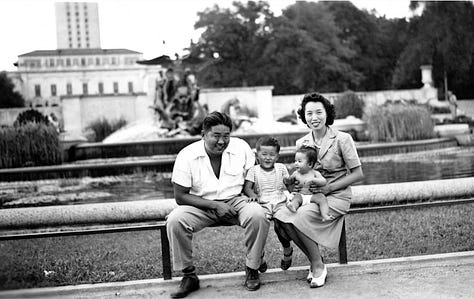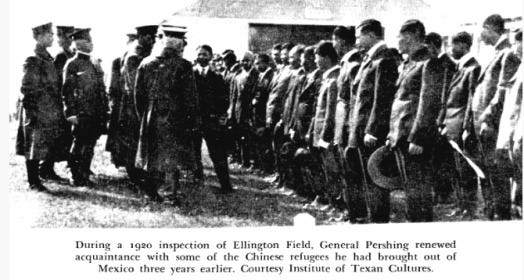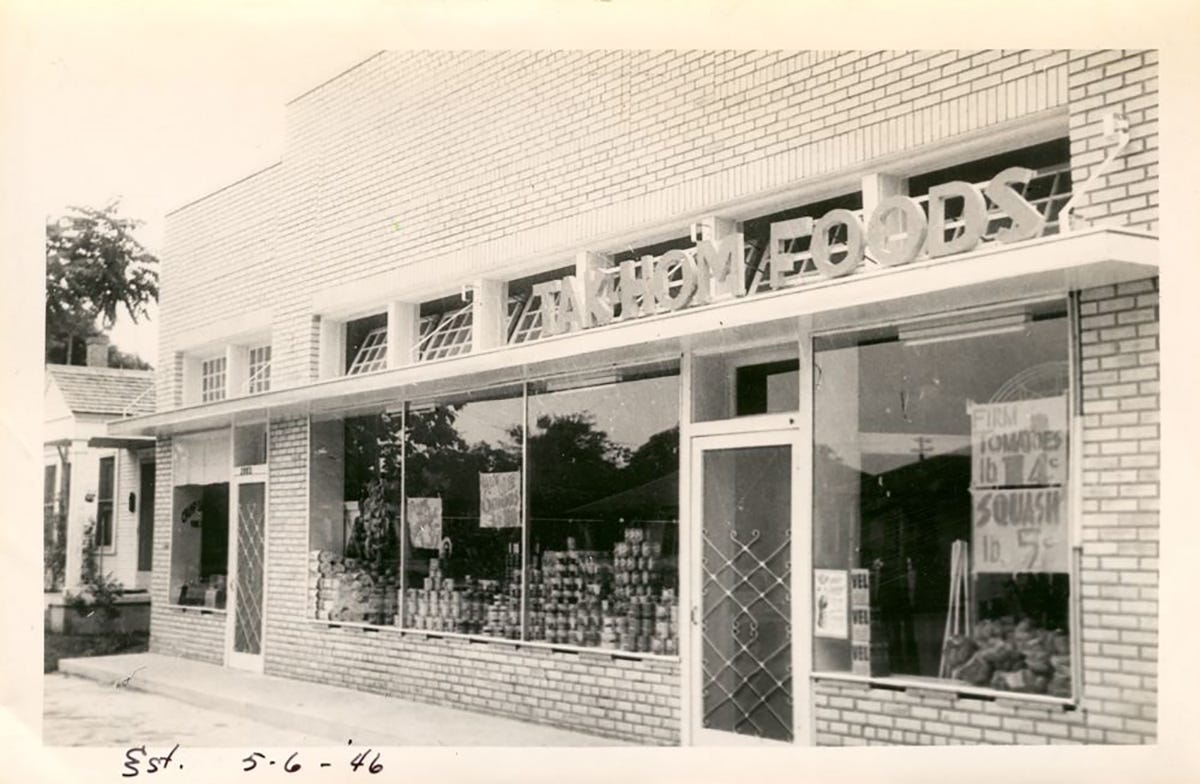The Legacy of the Wong Family: From the Mexican Expedition to Modern Austin
“Our primary motivation was to give back to the community and help train future doctors,” Mitchel explained. “We wanted to set an example for others.”
During the Mexican Expedition, hundreds of Chinese immigrants residing in Mexico made a bold choice—they joined forces with the U.S. military. Though they didn’t wear uniforms, these Chinese volunteers played a crucial role in supporting General John J. Pershing’s campaign by bolstering logistical efforts.
General Pershing, later celebrated as the victorious commander of the American Expeditionary Forces in World War I, never forgot their contributions. After being promoted to the prestigious rank of General of the Army—the highest ever bestowed in U.S. military history—he began a mission alongside William Tracy Page to fight for legal permanent residency for the Chinese who had supported the military effort in Mexico. These loyal, hardworking individuals came to be known as the Pershing Chinese.
Their path was not easy. They lived in the shadow of the Chinese Exclusion Act, which had halted Chinese immigration following the completion of the transcontinental railroad. But on November 23, 1921, a presidential decree changed everything. Responding to Pershing’s request, President Warren G. Harding signed Public Law No. 29, allowing approximately 500 Chinese immigrants to legally migrate from Mexico to the United States.
Most of them settled in San Antonio, Texas, contributing to the construction of military bases and establishing small businesses that became part of the city’s vibrant fabric. Among them were Don Wong and his wife, Lee She Wong, who opened grocery stores and laid the foundation for future generations.
One of their children, Fred Wong, grew up in San Antonio and in 1936 married Rose Chin from Chelsea, Massachusetts. They planned to open a grocery store in Corpus Christi, following in Fred's father’s footsteps, but faced rejection and unwelcoming attitudes there. Instead, they chose Austin.
In 1938, Fred and Rose opened the China Food Market on Red River Street. Their lives flourished in Austin. In 1939, they welcomed their first child, Mitchell—who became the first Chinese baby born in Austin.
At the time, Chinese families in Texas were still viewed as unusual. When a classmate once called Mitchel “Chinaman,” his mother firmly corrected him:
“You are American Chinese.”
Her message was clear—this was their home, and they were part of the American story.



As Fred’s grocery business grew, Mitchel worked long hours—up to 70 hours a week. At one point, he believed he would eventually inherit the family business. But after a grueling 15-hour shift, his father gave him a choice: the grocery store or college. Mitchel chose college—a decision that would change his life, and Austin’s.
He enrolled at the University of Texas, double-majored in zoology and chemistry, and graduated in just three years. He then attended Baylor College of Medicine and returned to Austin to begin his career as an ophthalmologist in 1969. That year, he founded the Austin Eye Clinic, marking the start of a new legacy.
Mitchel became a pioneer in the field—performing Austin’s first LASIK surgery and introducing laser cataract surgery to the city. His work transformed eye care in the region, and his influence grew far beyond medicine.
Throughout his career, Mitchel remained deeply engaged with the Asian American community. In 2011, he received the Legacy Award at the Asian American Community Leadership Awards, honoring his dual contributions to medicine and community.
In 2018, Mitchel and his family pledged more than $20 million to establish the Mitchell and Shannon Wong Eye Institute at Dell Medical School. This was more than a financial gift—it was a vision for the future of eye care and a commitment to training the next generation of doctors.
“Our primary motivation was to give back to the community and help train future doctors,” Mitchel explained. “We wanted to set an example for others.”
Mitchel’s legacy lives on through his children. His son Shannon joined the practice, continuing the family’s work in ophthalmology. His other sons—Sean, Patrick, and Michael—pursued careers in medicine, photography, and real estate, each contributing to Austin’s cultural and professional landscape.
At a 2018 public event, Mitchel offered advice to the next generation:
“Instead of being entitled, be enabled,”
he said—a reflection of the Wong family’s enduring values of resilience, responsibility, and self-empowerment.
From their humble beginnings in San Antonio to becoming one of Austin’s most respected families, the Wongs’ story is one of perseverance, hard work, and community spirit. Their contributions continue to enrich Austin and inspire future generations.
As Mitchel reflected on his journey, he emphasized the importance of seizing opportunity:
“Life is full of opportunities. If you sit around and wait for someone to tell you what to do, that’s one path. But if you can see opportunities and take advantage of them, that’s a whole different road.”
He also shared a deeply personal belief:
“Choosing your lifelong partner is extremely important. If you choose wisely, you’ll be happy. If not, you won’t be. Choose someone who shares your values—your morals and your work ethic.”
“I met my wife on the first day of school,” he recalled. “That day, I met a good friend—we’re still friends today—and I met my wife. If I hadn’t chosen to go to school, I wouldn’t have met them.”
This is the story of the Wong family: a story of heritage, resilience, and giving back to the city that has embraced them for generations.
(Images from Austin History Center and PBS Austin)










